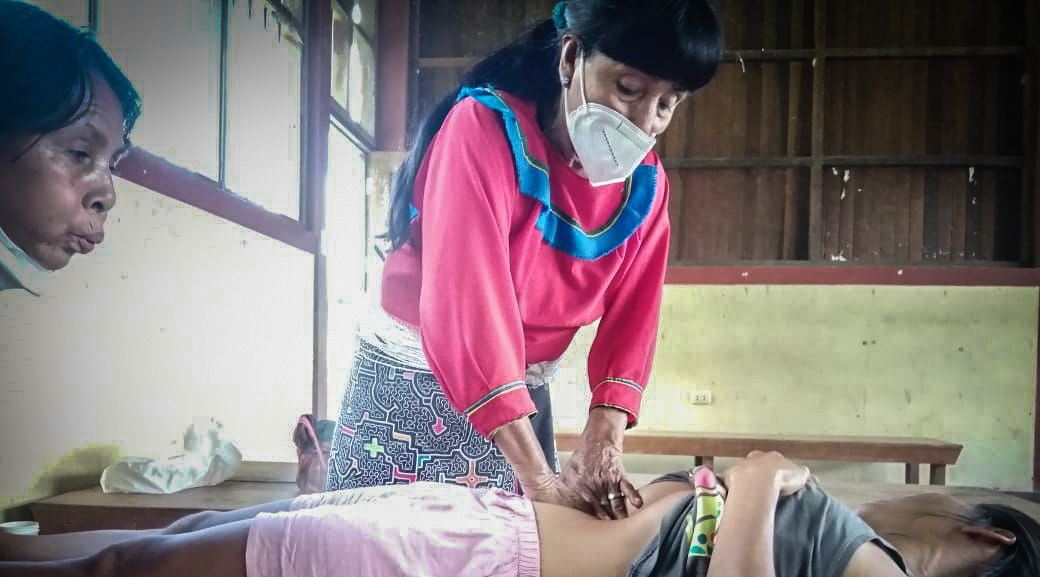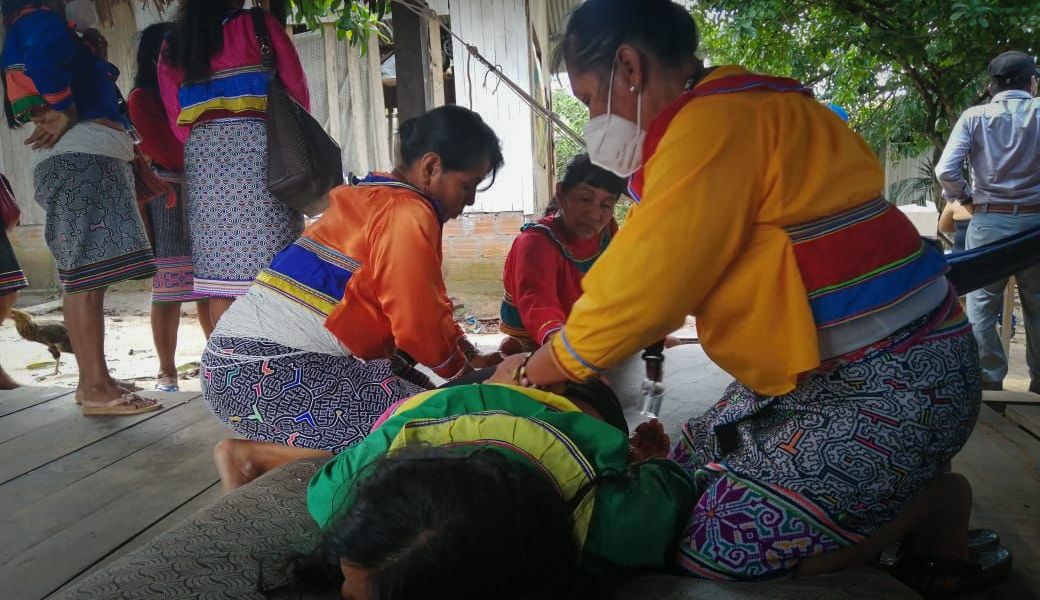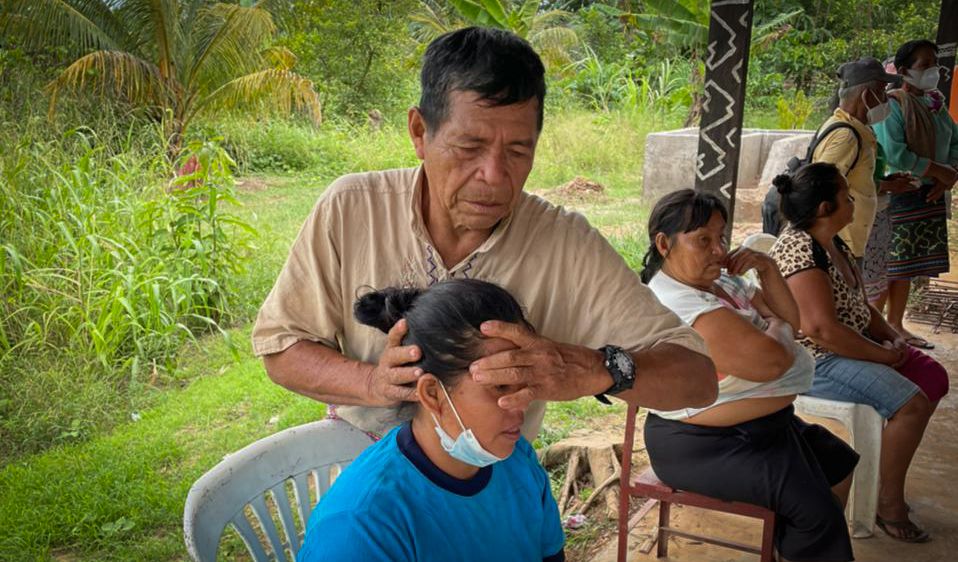By
Throughout the pandemic, the Chaikuni Institute has been making many efforts to support indigenous communities coping with the impacts of the coronavirus. One of the most critical projects that we have been honored to support is the initiative of the Association of Shipibo Onanyabo (healers), ASOMASHK.
Abandoned by the government and local health authorities, this initiative enables Shipibo healers (Onanyabo) to visit Shipibo communities and offer free plant-based and shamanic treatment of patients according to traditional Shipibo healing practices.
In addition to the visits, the Shipibo healers also participated in a weekly radio show to raise awareness about their project, and about Shipibo culture and healing traditions. In this short article, the president of ASOMASHK, Walter Ramiro Lopez Lopez (Panshin Nima), gives us his thoughts and insights about this important initiative.
The importance of the Onanyabo as community support during the COVID19 crisis
The Onanyabo are the master healers of the Shipibo-Konibo ethnic group. As ancestral leaders of our people, we called into life the initiative of the Onanyabo in Action to help our people face the coronavirus crisis. While this is a tragic moment, the pandemic has made us aware that only united and connected can we survive.
We experienced this feeling of unity and connection when we visited the 8 communities as part of the initiative: Puerto Firmeza, Santa Clara, Nuevo Egypt, San Francisco, San Salvador, Santa Teresita, San Juan - km. 13 and Victoria Gracia, all belonging to the jurisdiction of Yarinacocha in the Ucayali Region.

Of these 8 communities visited, approximately 300 people, including children, adolescents, youth, adults, and the elderly were cared for and treated according to their health problems, with both ancestral and conventional medicines. Among others, we applied such techniques massages, sopladas (shamanic blows of plant spirit energetic medicine), chupas (shamanic suction of negative energies), as well as western medications and vitamin injections.
This social work involved up to 25 Onanyabo, including both maestras (female healers) and maestros (male healers) from the almost 140 members that ASOMASHK counts, an association that brings together the Shipibo healers and wisdom keepers nationwide.

The impact we´ve been having in the communities through these visits has been unprecedented. They had never seen a mobilization of so many indigenous healers together under the same objective: to heal their people from an unknown threat and other illnesses. Never before have so many healers organized and gathered together by any indigenous organization, nor by the Government of our country.
This initiative of the Onanyabo has also awakened the interest of other Shipibo communities that want and need to be visited, cared for, and treated for their health needs. There are still many sick people among our peoples (i.e the Shipibo-Konibo), that is why it is important that this initiative continues.
Spreading awareness through community radio
Another important factor that has helped the Shipibo-Konibo healers in our work to help our people is having a radio program, which, under a structured cultural orientation, has turned the view of our people towards our origins. With this first phase of running a weekly radio program, we have generated a lot of interest from the population. Each radio show makes us feel as if we are awakening from a dream that we had forgotten many years ago.
We have also realized that the best means of communication that reaches the communities is the radio. For this reason, communication is critical, and we are very much hoping to be able to continue this important radio program!


